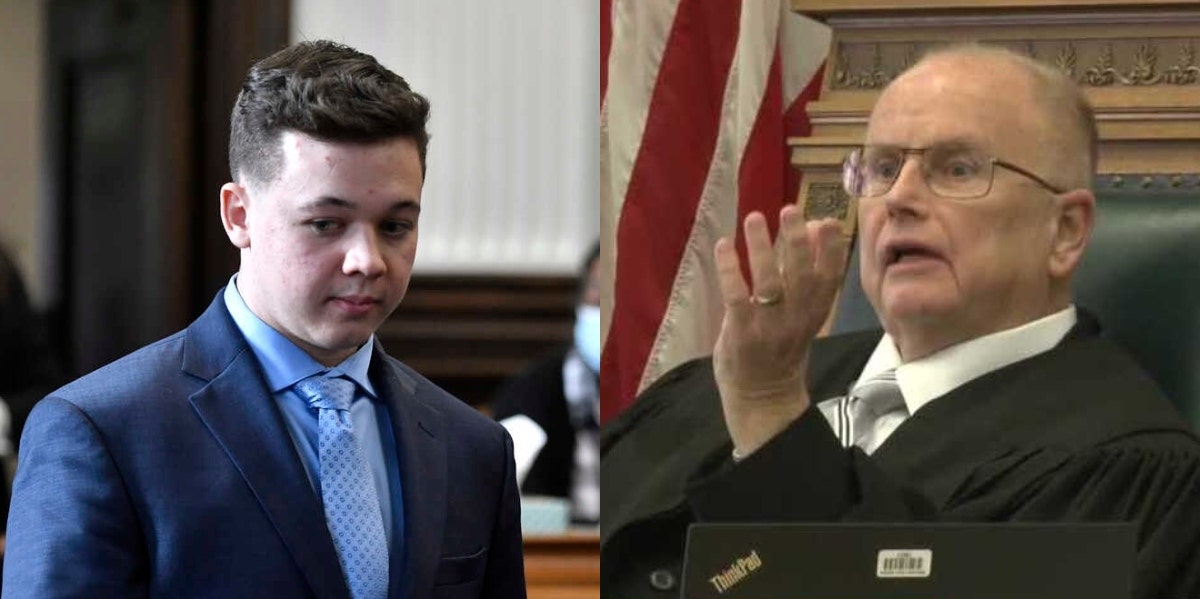Judge In Kyle Rittenhouse Trial Has A History Of Botched Cases & Controversial Rulings
This can't be good
 YouTube
YouTube Recently, the Kenosha County judge handling the Kyle Rittenhouse case, Judge Bruce Schroeder, came under fire for comments he made about the people who were shot by the defendant.
Schroeder was met with a lot of criticism when he said that the victims in the Rittenhouse shooting could not be referred to as “victims,” but could be referred to as “looters,” “rioters,” and “arsonists” if the evidence proved they were.
This caused many people to call for Schroeder’s recusal, arguing that if he remains the judge in the case that there could be a mistrial — but what many don’t know is that Schroeder has a long history of controversy.
Who is Judge Bruce Schroeder?
Judge Schroeder has resided in the court system for over 40 years and has seen several high-profile, controversial cases — Rittenhouse is no different.
In 1987, he made headlines for requiring convicted sex workers to test for AIDS.
“'I’m concerned about the man who patronizes a prostitute who has AIDS and then goes home and transmits the virus to his girlfriend, or to his wife, and there is a baby born who later dies of AIDS,'' Schroeder said. ''What about the rights of that child?''
The American Civil Liberties Union raised questions about whether or not they would issue a constitutional challenge to the ruling, to which Schroeder replied, “I would like to see the issue resolved, and I hope they lose.”
Many defendants have requested that Judge Schroeder doesn't preside over their case.
By 2006, Schroeder’s reputation spread enough to the point where hundreds of defendants were asking to have their cases switched to another judge.
Under Wisconsin state law, a person charged with a crime has the right to ask once for a different judge, but Schroeder doesn’t understand why people are asking for the switch.
"It almost becomes irrational,” he said. “I've had people file on me who had a traffic ticket for bald tires.”
His unpredictability and stern sentencing seem to be the unanimous agreement among those who ask for the switch.
"From a defense standpoint, clients like somewhat more certainty," defense attorney Michael Cicchini said of the Kenosha county judge.
Several of Schroeder's rulings have been overturned.
The last high-profile case that Schroeder was a part of was in 2008 when Mark Jensen was found guilty of murdering his wife by poisoning her with anti-freeze.
Judge Schroeder sentenced him to life in prison, but the conviction was later overturned because of his evidentiary ruling.
“I made evidentiary ruling here and DA appealed it,” Schroeder said, “and it went to the Supreme Court, and it's going to trial again next April 20, years later, because the Supreme Court reversed my evidentiary decision, and they've been told now at the federal court that they were wrong in doing that, the original ruling was a correct one."
Schroeder allowed a letter that was written by the wife to be used as evidence that said if anything happened to her, her husband should be the first suspect.
Earlier this year, 2021, another one of his rulings was overturned after he tried to shame a woman that was convicted of retail theft.
Schroeder ruled that the 28-year-old woman would have to “notify management at the service desk that she is on supervision for retail theft.”
The appeals court deemed the extended supervision condition unfair because they found that the notification would likely result in store managers refusing to allow her in their stores — preventing her from buying necessary items like groceries.
The Rittenhouse case is another example of the bizarre precedents that surround Judge Schroeder’s cases and would likely cause a problem during the actual trial, set to take place on November 1st.
Isaac Serna-Diez is a writer who focuses on entertainment and news, social justice, and politics. Follow him on Twitter here.
